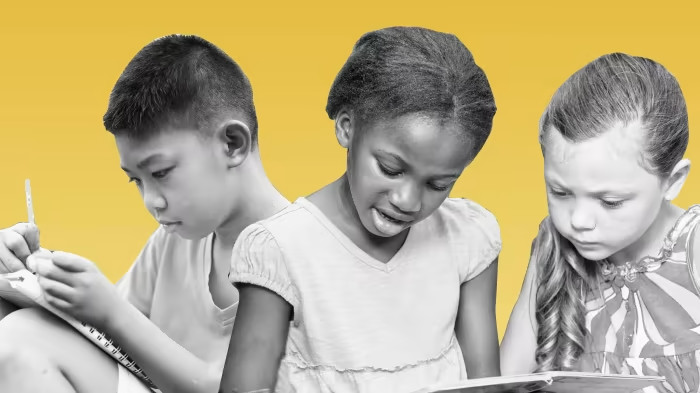Students call for better pandemic teaching methods and learning materials

Roula Khalaf, Editor of the FT, selects her favourite stories in this weekly newsletter.
This article is part of the Financial Times free schools access programme. Details/registration here.
Students from Uganda, Zimbabwe and Brazil have won the 2022 FT/World Bank blog competition on how to improve education during the pandemic.
The judges selected submissions from Jamie Mirembe Catalina Namayanja, Vimbai Zisengwe and Isabela Melara Cavassin out of more than 500 entries from 104 countries.
Most students argued that online learning was no substitute for face-to-face interaction in schools, but some also highlighted the benefits of technology and called on policymakers to be more flexible and explore combining the best elements of both approaches.
Many cited the damaging effects of lockdowns on mental health, the inability of online learning to provide a substitute for the social aspects of studying and the “digital divide” of poor internet access in many regions and countries around the world.
Jamie Mirembe Catalina Namayanja from Uganda described the difficulties of remote learning for poorer children, who have no access to the internet and seek to balance household work with lessons broadcast on radio despite distractions and noise at home. She also called for politicians to place a greater emphasis on education.
Our leaders ought to be more innovative in . . . how they cater to the needs of humbler communities. They can issue leaflets containing subject-specific notes to accompany lesson broadcasts . . . or set up community centres to host interactive sessions like science experiments and presentations. — Jamie
Vimbai Zisengwe from Zimbabwe called for cheaper, accessible and relevant textbooks that were locally produced, reflected the country’s curriculum and would offer support for remote learning, as well as the need to upgrade the internet and make it affordable. She also said teachers should be better paid and trained.
During 2020, I saw school children having to pay their teachers personally to learn. This should be unacceptable and banned . . . They should be tested regularly in not only computer literacy, because I have seen many teachers struggle with using their laptops during online [sessions], but also their subject area. This would ensure that they teach correct and relevant information. — Vimbai
Isabela Melara Cavassin from Brazil called for more tutoring and fewer tests for students. She also argued that teachers could make online learning more enjoyable by getting students to study materials first and then using classroom sessions for lively discussions.
The inverted classroom encourages healthy studying habits, stimulates the establishment of a routine, and makes learning a much more personalised and rewarding experience. The teacher assumes a tutor role, rather than an authority one, and helps each student with their own necessities. — Isabela
The full essays are available on the World Bank’s competition website.
Comments